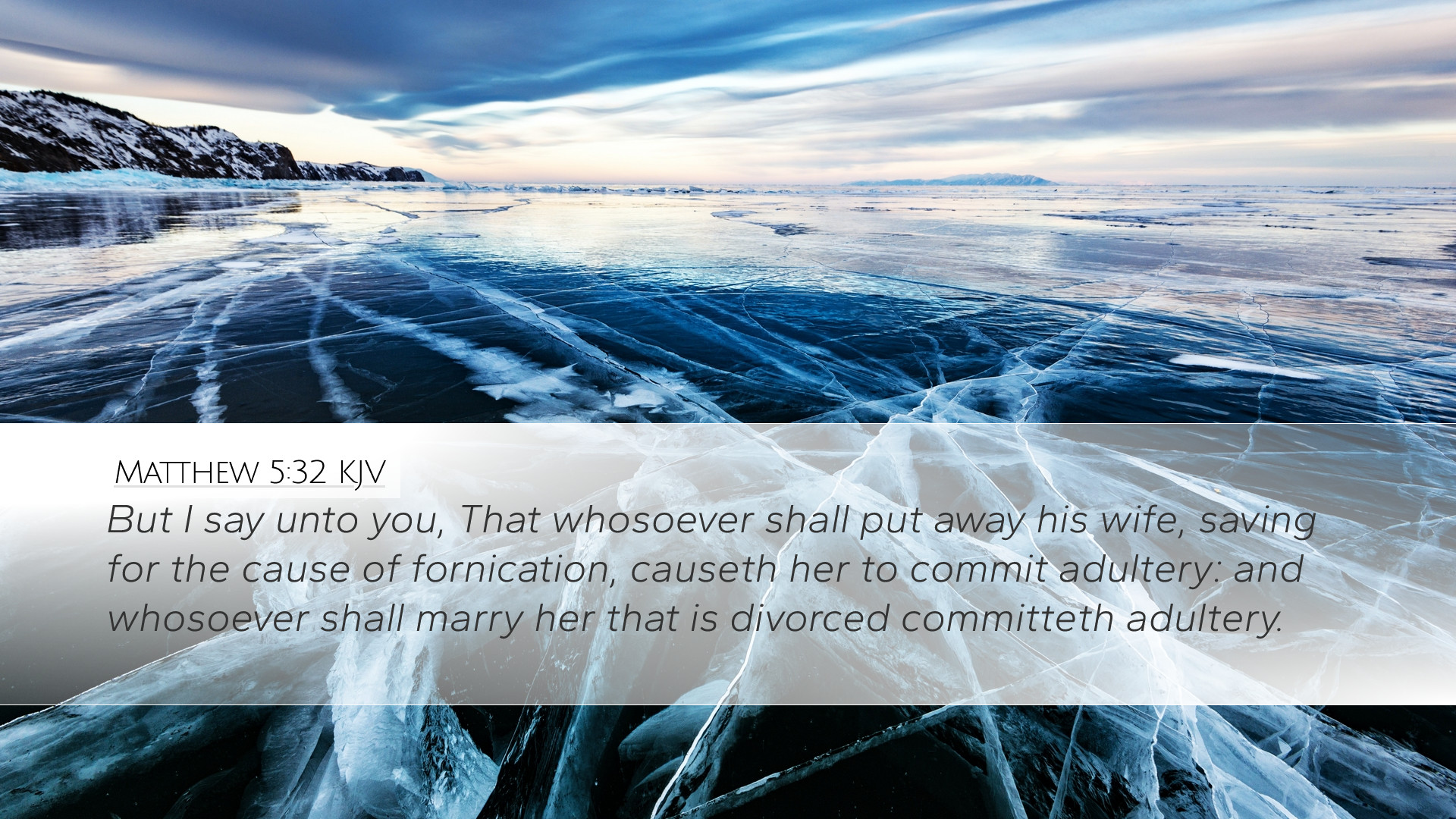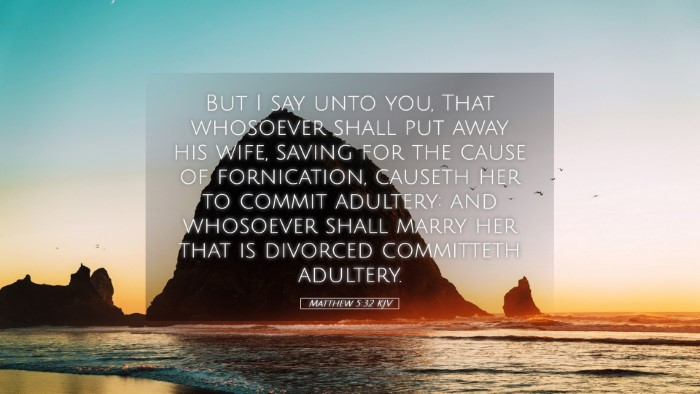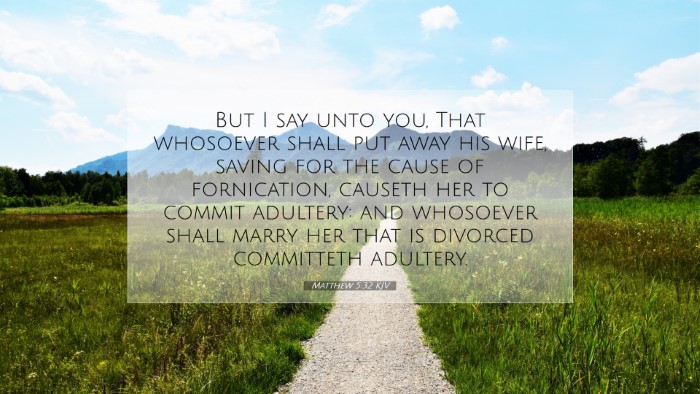Commentary on Matthew 5:32
Verse Text: "But I say unto you, That whosoever shall put away his wife, except for the cause of fornication, causeth her to commit adultery: and whosoever shall marry her that is divorced committeth adultery."
Introduction
This profound statement from Jesus in Matthew 5:32 appears within the context of the Sermon on the Mount, where He reinterprets the Law, elevating the moral and ethical standards expected of His followers. The verse addresses the delicate subject of divorce and remarriage, depicting the seriousness with which God regards the marital union.
Historical Context
In Jesus' time, divorce was commonly practiced among the Jewish community, often based on interpretations of Mosaic Law. The Pharisees had developed different schools of thought on the permissible grounds for divorce, leading to widespread confusion and misuse. Jesus challenges these interpretations, emphasizing the sanctity of marriage and the conditions under which divorce genuinely constitutes a moral failing.
Analysis of Key Phrases
- "Put away his wife": This phrase points to the act of divorce, implying a formal separation that alters the covenant of marriage.
- "Except for the cause of fornication": The inclusion of this exception indicates a specific situation whereby marital fidelity has been breached, reserving the right for divorce under significant and grave circumstances.
- "Causeth her to commit adultery": Here, Jesus indicates the spiritual consequences of divorce, where the act itself leads to further moral corruption if not handled righteously.
- "Whosoever shall marry her that is divorced": This highlights the duality of the consequences of divorce, impacting not just the parties directly involved but also subsequent relationships formed thereafter.
Theological Implications
From a theological perspective, this verse speaks to the nature of God's covenant with humanity, reflecting the unwavering commitment He desires between spouses. Commentators highlight that Jesus underscores the gravity of sin and the profound impact of marital decisions. It further illustrates the seriousness with which the Lord views both marriage and divorce, pointing to the need for holiness and integrity within these relationships.
Matthew Henry's Insights
Henry asserts that the essence of this teaching is to highlight the divine intention for marriage—an institution designed for permanence and intimacy. He emphasizes that divorce should be considered a serious matter, only permissible under specific conditions that do not arise from mere dissatisfaction or situational strife. Furthermore, he points out that the sinful nature of remarriage after an unjust divorce compounds the issue, leading both parties into a state of ongoing sin.
Albert Barnes' Interpretation
Barnes elaborates on the notion that Jesus introduced a stricter standard than what was traditionally accepted by the Jewish leaders. He astutely notes that the only legitimate ground for divorce is marital unfaithfulness, thereby protecting the sanctity of the marital bond. Barnes also underscores the potential for spiritual and relational turmoil caused by divorce, urging believers to pursue reconciliation and forgiveness rather than separation whenever possible.
Adam Clarke's Commentary
Clarke addresses the cultural and social implications of divorce during the time of Jesus. He points out that by allowing for divorce under inappropriate circumstances, society fosters an environment where lust and immorality are normalized. Clarke emphasizes that Jesus’ words challenge societal norms and incite reflection on the sacredness of the matrimonial covenant.
Practical Applications
For pastors, students, and theologians alike, this verse offers rich material for sermon preparation, teaching, and counseling. The implications of this passage encourage a return to foundational biblical truths concerning marriage, urging the importance of commitment and fidelity. Here are practical opportunities to apply these insights:
- Counseling Couples: Use this passage as a discussion point with couples facing marital troubles, encouraging a focus on reconciliation rather than dissolution.
- Preaching on Marriage: Incorporate teachings from this verse into sermons focusing on the holiness of the marital bond and God's design for relationships.
- Addressing Divorce: Equip church leaders to provide guidance on handling divorce in a compassionate manner that aligns with biblical principles while addressing the pain involved.
Conclusion
Matthew 5:32 serves as a critical lens through which the nature of marriage, divorce, and moral integrity can be examined and understood. The insights drawn from esteemed commentaries reaffirm the importance of approaching these topics with both biblical clarity and pastoral sensitivity. Ultimately, Jesus’ teaching is a call to elevate the understanding of marital commitment within the Christian community, reinforcing that the covenant of marriage reflects the greater relationship between Christ and His Church.


